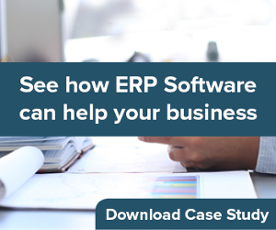 Manufacturers creating a lean environment and taking control of the entire product journey from sales to delivery can save money and improve operational efficiency.
Manufacturers creating a lean environment and taking control of the entire product journey from sales to delivery can save money and improve operational efficiency.
For this reason, enterprise resource planning (ERP) systems can give the edge to organisations that place a big emphasis on operational efficiency, managing more of their orders from placement to completion. ERP software is ideal for complex projects and it all starts with the order processing itself, which benefits those overseeing this part of the product journey, allowing them to stay on top of a mountain of information - rather than allowing it to get out of control, as is sometimes the case with manual systems.
That's because status, tracking, delivery dates and even credit limit checks can be overseen easily with ERP software, as it offers automation and traceability at both the back and front ends of the process.
Supply chain and lead time management are crucial to organisations that have a 'lean management' model, and expect to reap the rewards of their prudent approach. These are tied into the MRP (Material Requirement Planning) capabilities that ERP software possesses. Where component parts and raw materials are involved, this is a crucial aspect of achieving accurate lead times and one of the major reasons why ERP software is valued by manufacturers as being so critical to their organisational ability.
When it comes to production management and the execution of projects themselves, we are seeing how ERP can revolutionise processes once prone to errors and inaccuracies. ERP allows improved communication, sharing relevant project information with whichever individuals the management wishes to give access to. The ability of all parties to track development and changes to a project without the need for endless email chains or disjointed memos can do wonders for the success rates of activities which are also under pressure to be completed within set timeframes.
Inventory and warehouse management is another area in which ERP excels, giving manufacturers and distributors a firm grip on the items they have, those they don't, and those they need.
Of course, all of the process parts mentioned above come back to one thing - the customer, and how we can improve the product journey for their benefit. The management of our relationship with them is part of controlling the experience they receive, and that's why the customer relationship management (CRM) functions of ERP software are so useful, tying into the other features of the software to give companies an integrated platform from which to manage multiple areas of their business.
WinMan ERP software delivers on all these fronts, with the advantage of being versatile and ability to be configured to fit in with the work processes of a large number of manufacturers and distributors, particularly organisations in retail and e-commerce.



.png?width=120&height=120&name=MicrosoftTeams-image%20(4).png)


